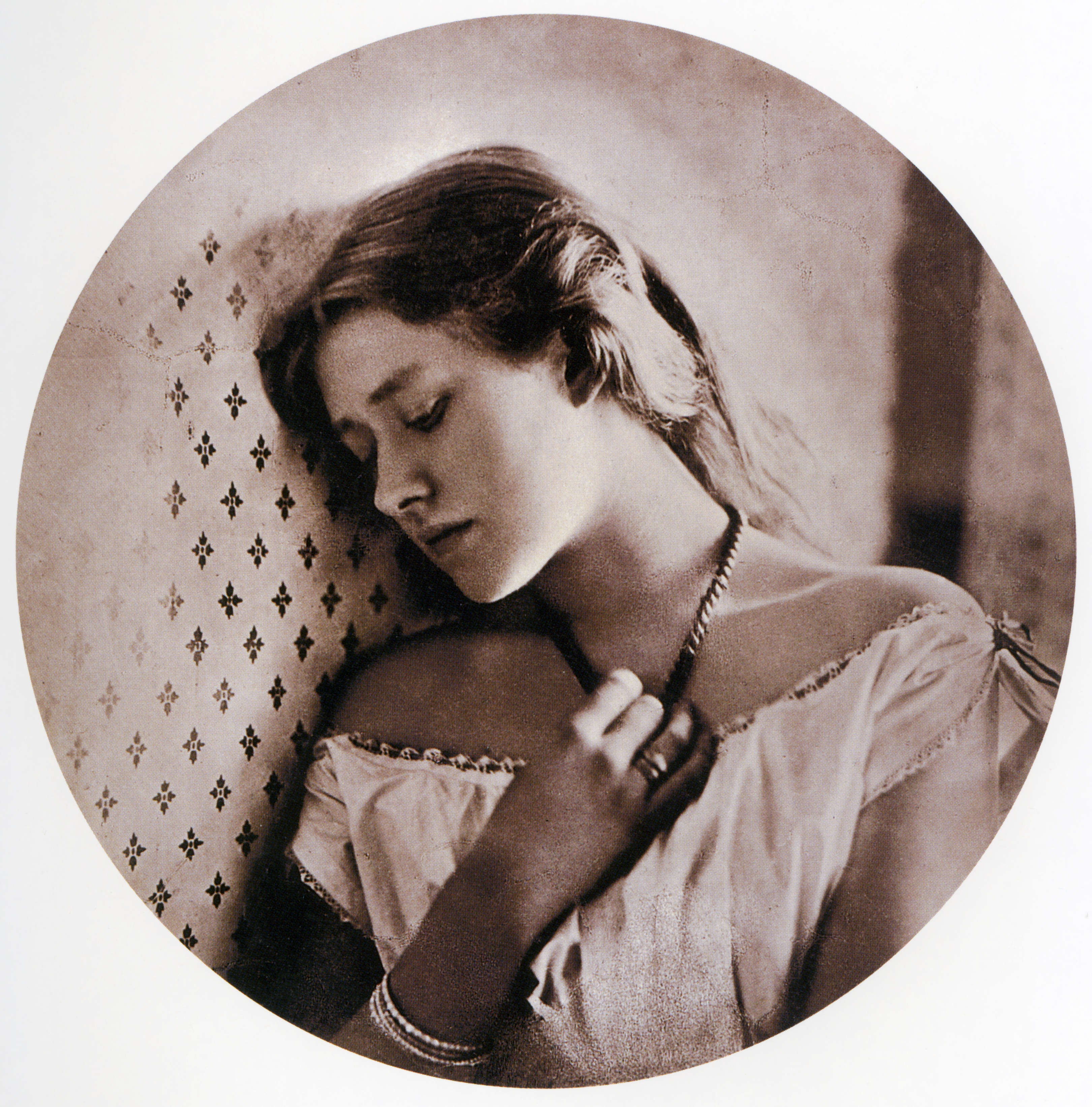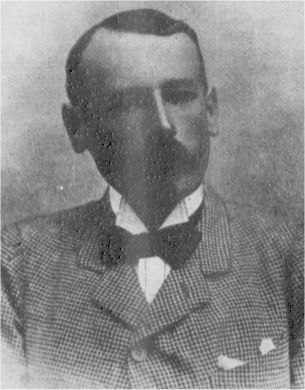|
Frank Desprez
Frank Desprez (9 February 1853 – 25 November 1916) was an English playwright, essayist, and poet. He wrote more than twenty pieces for the theatre, as well as numerous shorter works, including his famous poem, ''Lasca''. Life and career Desprez was born in Bristol, England, the eldest of the eleven children of Charles Desprez, a jeweller and silversmith. The family was of French descent. He was educated at Cosham School, Wiltshire and spent three years in his teens in the U.S. State of Texas. In 1883, Desprez married Jessie Louisa Potter Macqueen. They had a son and two daughters. Librettist and assistant to Richard D'Oyly Carte Desprez returned to Britain in 1875. His first piece written for the theatre shortly thereafter was an adaptation of ''La fille de Madame Angot''. When this piece went on the road in 1876, he also wrote a companion piece for it called ''Happy Hampstead'', which was set to music by the theatrical agent and composer Richard D'Oyly Carte. Desprez be ... [...More Info...] [...Related Items...] OR: [Wikipedia] [Google] [Baidu] |
Royalty Theatre
The Royalty Theatre was a small London theatre situated at 73 Dean Street, Soho. Established by the actress Frances Maria Kelly in 1840, it opened as Miss Kelly's Theatre and Dramatic School and finally closed to the public in 1938.Royalty Theatre at the Arthur Lloyd site accessed 23 March 2007 The architect was Samuel Beazley. The theatre's opening was ill-fated, and it was little used for a decade. It changed its name twice and was used by an opera company, amateur drama companies and for French pieces. In 1861, it was renamed the New Royalty Theatre, and the next year it was leased by Mrs Charles Selby, who enlarged it from 200 seats to about 650. The t ... [...More Info...] [...Related Items...] OR: [Wikipedia] [Google] [Baidu] |
George Dance (dramatist)
Sir George Dance (14 October 1857 – 22 October 1932) was an English lyricist and librettist in the 1890s and an important theatrical manager at the beginning of the 20th century. Dance wrote several hit musicals, including '' The Gay Parisienne'' (1894) and ''A Chinese Honeymoon'' (1899), one of the most successful musicals in history until the 1940s. In the early years of the 20th century, he became one of the most successful theatrical managers in the United Kingdom, managing many productions both on the West End and on tour. Biography Dance was born in Nottingham, England, the son of Isaac Dance (1824–1880) a pipe maker. Dance was educated at the National School, Sneinton, Nottingham. He married Grace Spong in 1898, and the couple produced two sons (Eric and James) and a daughter (Phyllis, later Mrs. Bertram Merritt). His son Eric, who died in a Japanese prison camp during World War II, contributed a large part of his inheritence towards the building of the Oxford Playh ... [...More Info...] [...Related Items...] OR: [Wikipedia] [Google] [Baidu] |
Procida Bucalossi
Procida (; nap, Proceta ) is one of the Flegrean Islands off the coast of Naples in southern Italy. The island is between Cape Miseno and the island of Ischia. With its tiny satellite island of Vivara, it is a ''comune'' of the Metropolitan City of Naples, in the region of Campania. Etymology The island derives its name from the Latin name ''Prochyta''. Προχύτη/Prochýtē means 'poured out' in Ancient Greek. According to another theory, ''Prochyta'' comes from the Ancient Greek verb ''prokeitai'', meaning 'it lies forth', because of the appearance of the island seen from the sea. Geography Procida is located between Capo Miseno and the island of Ischia. It is less than . Its coastlines, very jagged, are . The ''Terra Murata'' hill is the highest point on the island (). Geologically, Procida was created by the eruption of four volcanoes, now dormant and submerged. History Ancient history Some Mycenaean Greek objects from the 16th to 15th centuries BCE have been found o ... [...More Info...] [...Related Items...] OR: [Wikipedia] [Google] [Baidu] |
The Carp (opera)
''The Carp'' is a one-act comic opera (styled "a whimsicality") with a libretto by Frank Desprez and music by Alfred Cellier. It was first produced at the Savoy Theatre from 13 February 1886 to 19 January 1887, as a companion piece to ''The Mikado''. It was then revived as companion to '' Ruddigore'' from 21 February 1887 to 5 November 1887. The piece also toured throughout 1888. No printed libretto or vocal score is found in British Library. A copy of the libretto is in the Lord Chamberlain's collection. As the score is lost, modern amateur productions have played the piece with original music. One such score, composed by Quade Winter, was originally requested in 1998 by the Gilbert and Sullivan Archive for their Web Opera series, and later orchestrated for production by the Ohio Light Opera in 1999. It was revived in 2011 by Concert Operetta Theater of Philadelphia, Pennsylvania. The fashion in the late Victorian era was to present long evenings in the theatre, and so p ... [...More Info...] [...Related Items...] OR: [Wikipedia] [Google] [Baidu] |
Percy Reeve
Percy Reeve (born 21 December 1855; date of death not known) was an English composer and music critic. Reeve wrote several successful operettas, often as companion pieces to longer works, as well as music for other theatrical pieces and serious music during the last two decades of the 19th century. As a music critic, he wrote extensively for ''Punch'', '' The Saturday Review'' and other publications. Life and career He was born in Harley Street, London, the son of a clergyman. He was educated at Eton and the London Academy of Music. In 1877 he was appointed to a civil service post in the Lord Chancellor's office, composing music in his spare time."Mr Percy Reeve", ''Lute'' magazine, December 1899, pp. 849-50 Reeve's operetta '' A Private Wire'' (1883) ran for more than nine months at the Savoy Theatre as a Curtain raiser to ''Iolanthe''. The same year, he wrote ''Love & Music'', a book of poetry. He later composed the music for "Ruddy George, or Robin Redbreast", at To ... [...More Info...] [...Related Items...] OR: [Wikipedia] [Google] [Baidu] |
A Private Wire
''A Private Wire'' is a one-act musical "vaudeville" operetta with a libretto by Frank Desprez and Arnold Felix and music by Percy Reeve. It was first produced at the Savoy Theatre on 31 March 1883 to 1 January 1884 as a companion piece to Gilbert and Sullivan's ''Iolanthe''. The piece also toured from March to July 1884. No copy of a printed libretto or vocal score is in the British Library. A copy of the libretto is in the Lord Chamberlain's collection. Background The fashion in the late Victorian era was to present long evenings in the theatre, and so producer Richard D'Oyly Carte preceded his Savoy opera Savoy opera was a style of comic opera that developed in Victorian England in the late 19th century, with W. S. Gilbert and Arthur Sullivan as the original and most successful practitioners. The name is derived from the Savoy Theatre, which ...s with curtain raisers such as ''A Private Wire''. W. J. MacQueen-Pope commented, concerning such curtain raisers: : ... [...More Info...] [...Related Items...] OR: [Wikipedia] [Google] [Baidu] |
Belle Lurette
''Belle Lurette'' is a three-act opéra comique with music by Jacques Offenbach and words by Ernest Blum, Edouard Blau and Raoul Toché. It was first performed at the Théâtre de la Renaissance, Paris, on 30 October 1880. The composer died before the orchestration of the score was finished, and Léo Delibes completed it. The opera depicts the romantic affairs of a beautiful Parisian laundress, known as "Belle Lurette", and the entanglements of those around her. Background Offenbach's career had been severely disrupted by the downfall in 1870 of the Second Empire, with which he had been closely linked. By the end of the decade he had substantially restored his earlier status as a composer of popular comic operas. His last completed such work, '' La fille du tambour-major'' (1879), ran for more than 240 performances, at a time when a run of 100 performances was considered a success. In the early 1870s Offenbach had been temporarily eclipsed by a younger rival, Charles Lec ... [...More Info...] [...Related Items...] OR: [Wikipedia] [Google] [Baidu] |
Eaton Faning
Joseph Eaton Faning (20 May 1850 – 28 October 1927), known as Eaton Faning, was an English composer and teacher. The son of a music teacher, he became the organist of a church at the age of twelve. He attended the Royal Academy of Music, where his teachers included Arthur Sullivan. He was an outstanding student, winning many awards. He joined the staff of the Academy in 1874 and later taught at the Guildhall School of Music, the Royal College of Music and Harrow School. As a composer, Faning's works ranged from operettas, including a one-act Savoy Opera, to church music, including a Mass (liturgy), Mass and a Magnificat. He also composed orchestral music including a symphony, and was best known for his songs, of which the most popular was the part-song ''The Vikings''. Biography Early years Faning was born in Helston, Cornwall, where his father, Roger Faning, was a music teacher.''The Times'', obituary, 31 October 1927, p. 16 Faning received his first instruction in music ... [...More Info...] [...Related Items...] OR: [Wikipedia] [Google] [Baidu] |
Mock Turtles (opera)
''Mock Turtles'' is a one-act comic opera with a libretto by Frank Desprez and music by Eaton Faning. It was first produced at the Savoy Theatre on 11 October 1881 as a Curtain raiser (drama), curtain raiser to ''Patience (opera), Patience'', then from 26 November 1882 to 30 March 1883 with ''Iolanthe''. The piece also toured from December 1881 throughout 1882. It also toured in 1883 and 1884 and enjoyed further revivals, including a tour in 1897 with J. M. Gordon and his company. A vocal score was published by Chappells, in 1882, which contains full dialogue as well as music. A copy is in the British Library. The libretto to ''Mock Turtles'' was republished by ''The Gaiety'' journal in September 2001. The fashion in the late Victorian era was to present long evenings in the theatre, and so producer Richard D'Oyly Carte preceded his Savoy operas with curtain raisers such as ''Mock Turtles''. W. J. MacQueen-Pope commented, concerning such curtain raisers: :This was a one-act ... [...More Info...] [...Related Items...] OR: [Wikipedia] [Google] [Baidu] |
Olympic Theatre
The Olympic Theatre, sometimes known as the Royal Olympic Theatre, was a 19th-century London theatre, opened in 1806 and located at the junction of Drury Lane, Wych Street and Newcastle Street. The theatre specialised in comedies throughout much of its existence. Along with three other Victorian theatres (Opera Comique, Globe and Gaiety), the Olympic was eventually demolished in 1904 to make way for the development of the Aldwych. Newcastle and Wych streets also vanished. 1806-1849: Early days and Madame Vestris The first Olympic theatre was built in 1806 on the site of Drury House (later Craven House), for the impresario Philip Astley, a retired cavalry officer. The original name of the house was the Olympic Pavilion. It was said to be built from the timbers of the French warship '' Ville de Paris''. It opened on 1 December 1806Victo ... [...More Info...] [...Related Items...] OR: [Wikipedia] [Google] [Baidu] |






